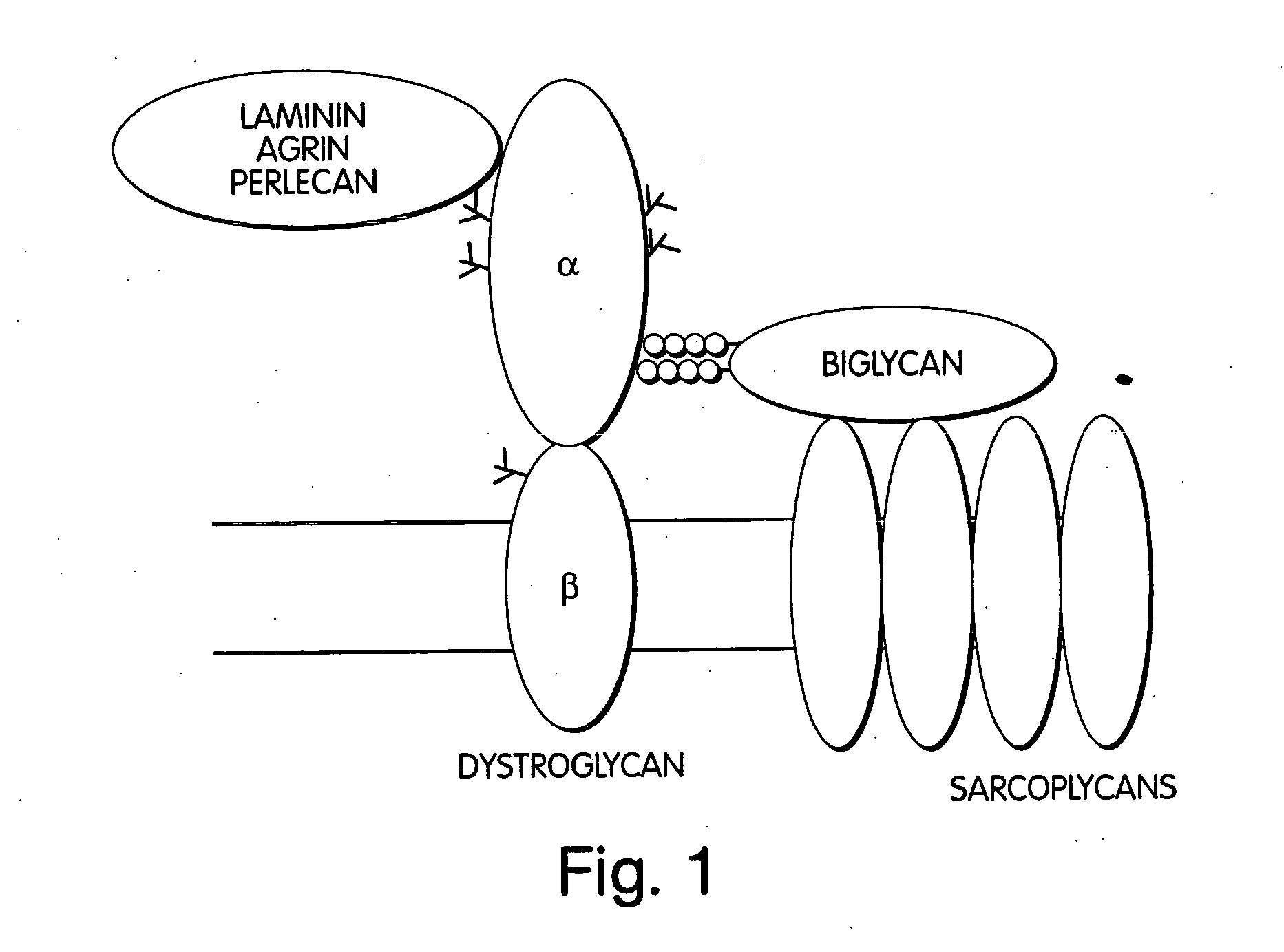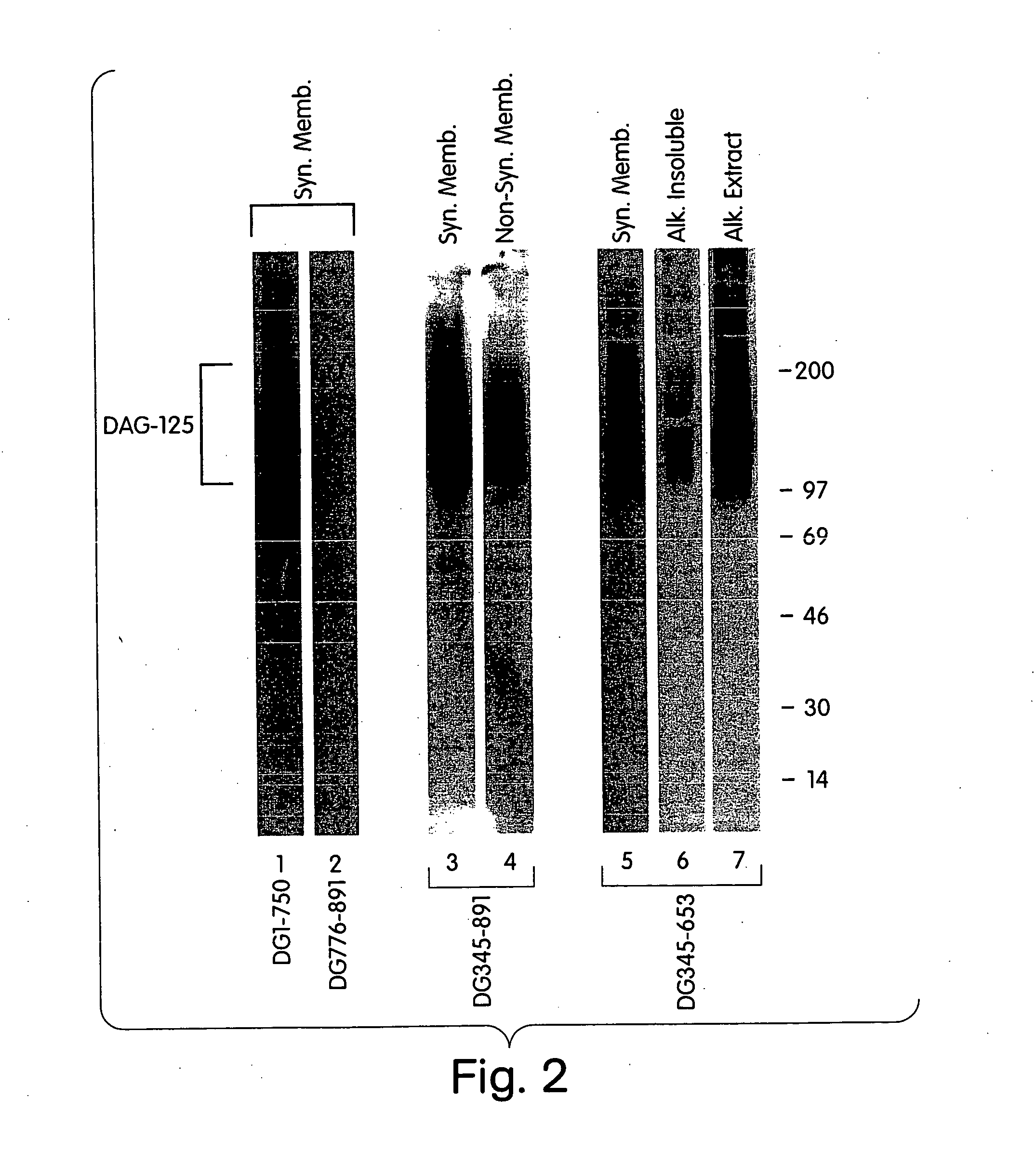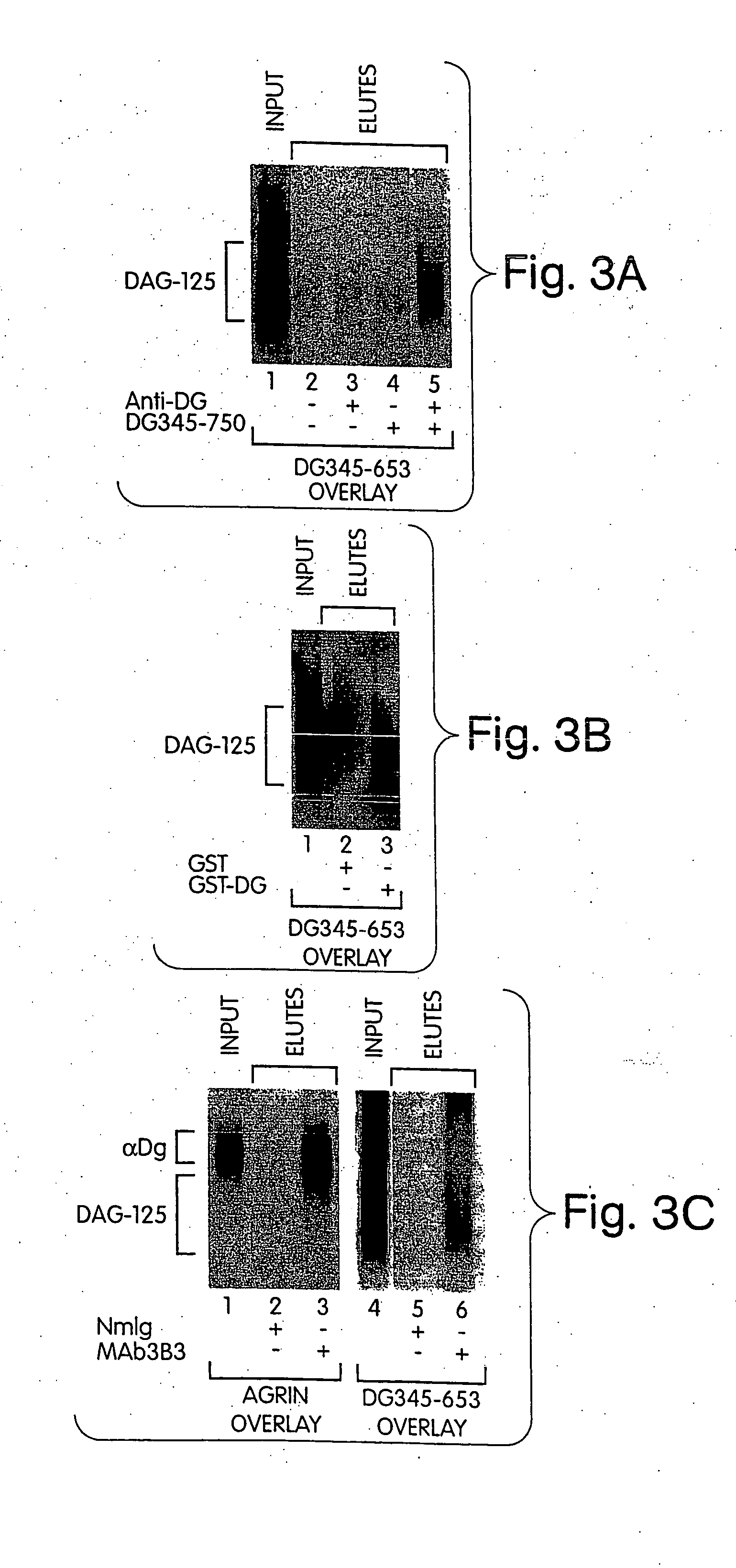Biglycan and related therapeutics and methods of use
a biglycan and related technology, applied in the field of biglycan and related therapeutics and methods of use, can solve the problems of affecting the survival rate of patients, unclear how agrin stimulates musk, and insufficient musk phosphorylation for agrin-induced achr clustering, etc., to achieve less “leaky” and prolong the life of cells
- Summary
- Abstract
- Description
- Claims
- Application Information
AI Technical Summary
Benefits of technology
Problems solved by technology
Method used
Image
Examples
example 1
Characterization of a Dystroglycan-Binding Protein, DAG-125
[0294] This Example describes the identification of a dystroglycan-binding protein, termed DAG-125.
[0295] In order to identify novel dystroglycan binding partners, a ligand blot overlay assay, was developed as follows. Postsynaptic and non-synaptic membrane fractions from Torpedo electric organ were prepared as previously described (Bowe, et al. (1994) Neuron. 12: 1173). All handling of membranes and protein was performed at 4° C.
[0296] Membrane proteins were separated by SDS-PAGE (5-15% gradient gel), and transferred to nitrocellulose. To detect dystroglycan binding proteins, the nitrocellulose was rinsed and blocked for 3 hr in Hank's Balanced Salt Solution containing 1 mM CaCl2, 1 mM MgCl2, 1% bovine serum albumin, 1% Nonfat Dry Milk, 1 mM DTT, 10 mM HEPES, pH 7.4, and was then incubated overnight in the same buffer containing 35S-methionine-labelled dystroglycan fragments produced by in vitro transcription / translation...
example 2
Association between α-dystroglyvcan and DAG-125
[0302] This Example demonstrates that DAG-125 associates with in vitro-translated α-dystroglycan, bacterially produced GST-α-dystroglycan fusion protein and native α-dystroglycan in solution.
[0303] DAG-125 was solubilized by alkaline-treatment, and neutralized, as described above, and incubated with column matrices and recombinant or native dystroglycan as indicated in FIG. 3. The input material and eluates from the beads were analyzed by ligand blot overlay assay for the presence of DAG-125 (35S-DG345-653 as probe) or native α-dystroglycan (agrin overlay, see Example 1).
[0304]FIG. 3A shows DAG-125 incubated with goat anti-mouse Ig-conjugated agarose beads in the presence or absence of in vitro translated dystroglycan polypeptide (DG345-750) and / or anti-dystroglycan monoclonal antibody (NCL-B-DG; Novocastra, Newcastle-on-Tyne, UK). The results indicate that DAG-125 co-precipitated with dystroglycan plus anti-dystroglycan antibody (la...
example 3
Localization of the DAG-125 Binding Domain of α-dystroglycan
[0308] This Example describes that the DAG-125 binding domain of α-dystroglycan is contained in an approximately 150 amino acid carboxyl-terminal domain of the protein.
[0309] In order to determine the region of α-dystroglycan that interacts with DAG-125, a panel of dystroglycan fragments were prepared by in vitro translation (FIG. 4) and the ability of each to bind DAG-125 was tested using the ligand blot overlay assay. FIG. 4, which shows the results, indicates that DAG-125 binds to the carboxyl-terminal one-third of α-dystroglycan. A small contribution from the middle third of α-dystroglycan is also possible. The ectodomain of β-dystroglycan does not appear to contribute to binding of DAG-125. Moreover, these fragments were produced under conditions in which the polypeptides are not glycosylated. Therefore, carbohydrate side chains on dystroglycan are not necessary for its binding to DAG-125.
[0310] Thus, the major bind...
PUM
| Property | Measurement | Unit |
|---|---|---|
| Temperature | aaaaa | aaaaa |
| Fraction | aaaaa | aaaaa |
| Breakdown voltage | aaaaa | aaaaa |
Abstract
Description
Claims
Application Information
 Login to View More
Login to View More - R&D
- Intellectual Property
- Life Sciences
- Materials
- Tech Scout
- Unparalleled Data Quality
- Higher Quality Content
- 60% Fewer Hallucinations
Browse by: Latest US Patents, China's latest patents, Technical Efficacy Thesaurus, Application Domain, Technology Topic, Popular Technical Reports.
© 2025 PatSnap. All rights reserved.Legal|Privacy policy|Modern Slavery Act Transparency Statement|Sitemap|About US| Contact US: help@patsnap.com



